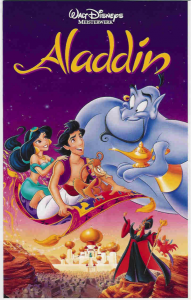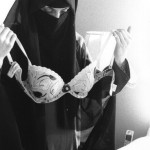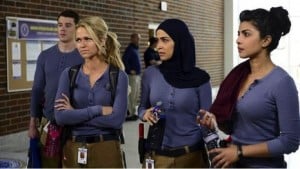My toddler cousins, like all children their age, were born into a world of rattles, Legos, diapers, and TV. Now more than ever, kids programming is a dominant and formative force in young children’s lives. The average preschooler spend 32 hours a week latched onto the TV screen, and by high school graduation has clocked more hours watching TV than at school. Studies have already shown us that the way kids’ TV treats race and gender affects how kids see their identities, and that kids need to see someone like them on their screen. White boys, for example, have been shown to have higher self-esteem after watching TV, which is typically dominated by characters matching their demographic, while underrepresented groups of children suffer from lower self-esteem after watching TV. So how come my toddler cousins see no little Muslim girls?
The four most popular stations for kids programming in the U.S. are Disney, Cartoon Network, Nickelodeon, and PBS Kids. Disney, arguably the biggest conglomerate, suffers from a shocking lack of diversity. Of its nine presently running live-action series, none of the characters are Muslim. Furthermore, Disney’s only efforts at diversity seem to be a halfhearted attempt to fulfill the minimum threshold needed to meet minority quotas; three shows have an all–white main cast, and of the 46 characters in the main casts of its currently running shows, 37 are white. Both Jessie and Phineas and Ferb do have little boys from Southeast Asia; these characters are horrendously stereotyped, both sporting thick accents that are often the brunt of jokes, and their religious background is not specified.

Cartoon Network and Nickelodeon have similarly poor showings of Muslim girls and women or Muslims at all in their programming. PBS Kids, due to its concerted efforts at diversity, fares a bit better, with online resources teaching kids about Arthur’s Muslim friend Ayah, who celebrate Ramadan. Still, there is no currently running TV show with a Muslim girl in the main cast, or even infrequent guest cast, on any of these three stations. The resolute absence of Muslim girls in the thousands of hours of programming these channels produce on a regularly basis in astonishing and may even cause young Muslimahs to have lower self-esteem. Furthermore, the white-dominated casts of most shows put on Christmas specials with regularity, without considering the possible alienating effects to children belonging to religions other than Christianity, like young Muslimahs.
Disney, Cartoon Network, and Nickelodeon have huge audiences outside of the U.S., and Disney is the world’s iconic children’s entertainment company. The lack of representation on their programming schedules hurts not only the millions of Muslim girls in the U.S., but diasporic Muslimah children around the world. Studies show that underrepresentation or negative representation of a child’s group hurts their self-esteem; what does an absence do?















